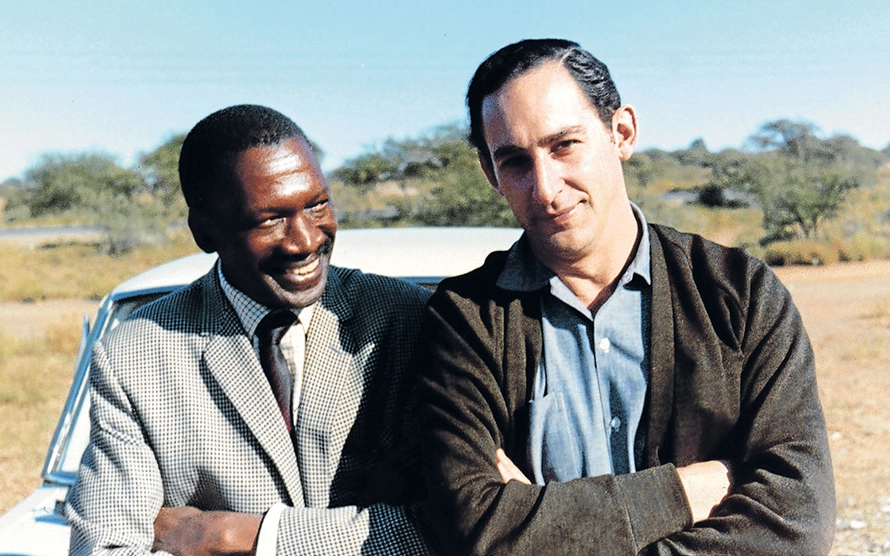One afternoon in 1957 in Johannesburg, Benjamin Pogrund walked into a classroom at the University of the Witwatersrand to meet his fiancée Astrid. He found her in conversation with her teacher, Robert Sobukwe, a lecturer in isiZulu (his official title at the university was “language assistant”). Astrid had spoken warmly of Sobukwe before and Pogrund took an easy liking to him, even though, as he later wrote, in the early days of their friendship he was not particularly impressed by Sobukwe as an intellectual (finding him “too academic and too timid”). No record of Sobukwe’s early impressions of Pogrund is available in the archives. They began to meet at Sobukwe’s office at Wits and later at Pogrund’s home in the whites-only suburbs of Johannesburg; Pogrund would “abuse” his journalistic privileges to visit Sobukwe at his home in Mofolo, a suburb of the Soweto township, sometimes socializing there with other men from the Pan Africanist Congress (PAC) such as P.K. Leballo, Zephaniah Mothopeng, and Peter Raboroko.
Sobukwe and Pogrund were both very similar and very different men. Similar in that they shared the social and intellectual formation of those educated in the intellectual tradition of the Enlightenment. Pogrund was less critical of this formation than Sobukwe, whose influences were more diverse. Sobukwe would later describe his taste in reading as “Catholic,” which is an apt way to describe who he was as an intellectual and a person. He had, for instance, the prodigious facility for and interest in language that is natural to anyone whose life has not been narrowed by a fascistic political context but particularly commendable in one whose life was interfered with in just such a way. Although the structure of settler society meant that settlers could get by as monolinguals, while natives were in general multilingual, Sobukwe’s openness to and interest in other languages and their cultures was probably unusual. He spoke the Afrikaans of both town and location fluently, as well as isiXhosa, seSotho, isiZulu, and English (the neat divisions between some of these languages, and indeed the idea that there are clear points at which one part of the spectrum of language can be marked off from another, was itself the product of colonial linguistics and anthropology). As an adult he became interested in Arabic, wishing to study it while in prison.
Both Pogrund and Sobukwe became active opponents of apartheid for which each man paid his price. Pogrund was serially harassed by the state (and periodically thrown into jail), while the newspaper he worked for was taken to court on account of his journalism. Sobukwe spent nine years in prison—six in solitary confinement on Robben Island—for his role in the Pan Africanist Congress’s anti-pass campaign and was then banished to the administrative district of Galeshewe in Kimberley in what was then the Cape province.
read more: https://africasacountry.com/2024/04/speaking-as-one-african-to-another/


